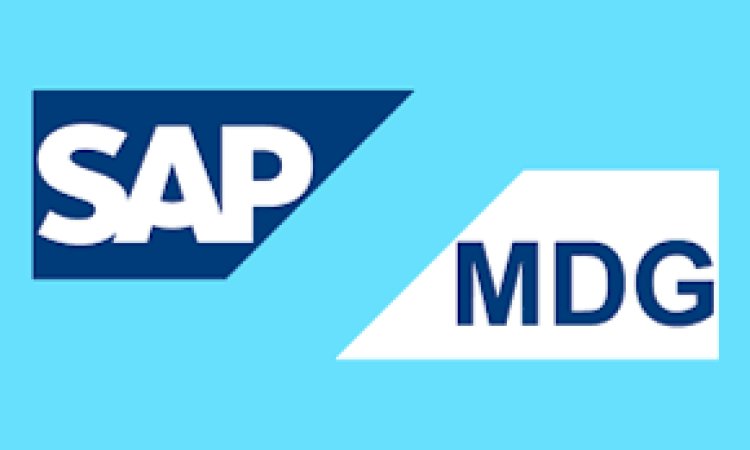A Comprehensive Overview of SAP MDG (Master Data Governance)
SAP MDG centralizes master data governance, ensuring data accuracy, consistency, and compliance across systems, enhancing data quality and business processes.
Share this Post to earn Money ( Upto ₹100 per 1000 Views )

In today's fast-paced business environment, effective data management is crucial for success. Enterprises often struggle to maintain accurate, consistent, and up-to-date master data across various departments and systems. SAP Master Data Governance (SAP MDG) is a powerful solution that addresses this challenge, providing a centralized platform for managing master data and ensuring data quality, compliance, and consistency.
What is SAP MDG?
SAP Master Data Governance (SAP MDG) is a master data management (MDM) solution integrated within the SAP ecosystem. It enables organizations to govern, manage, and maintain their critical master data, such as customer, supplier, material, and financial data, in a centralized and streamlined manner. SAP MDG provides predefined data models, governance processes, and tools to ensure that master data is accurate, reliable, and accessible across the entire organization.
With SAP MDG Training, businesses can manage master data across different SAP and non-SAP systems, ensuring consistency and compliance. The solution supports data replication, enrichment, and validation processes, reducing errors and duplication, and enhancing overall data quality.
Key Features of SAP MDG:
-
Centralized Master Data Management: SAP MDG provides a single platform for managing and governing master data across multiple domains, including finance, customer, supplier, and material data. This centralization improves data accuracy and consistency throughout the organization.
-
Predefined Data Models: SAP MDG comes with out-of-the-box data models for various domains such as customer, vendor, material, and financials. These models can be customized to meet the specific needs of the business, offering flexibility while maintaining standardization.
-
Data Governance Framework: SAP MDG offers a strong governance framework that ensures master data is created, updated, and maintained according to predefined business rules and approval workflows. This reduces data inconsistencies and ensures compliance with regulatory standards.
-
Integration with SAP and Non-SAP Systems: SAP MDG can be integrated with both SAP and non-SAP systems, allowing master data to be distributed across different landscapes while ensuring consistency. This feature is essential for organizations with diverse IT infrastructures.
-
Data Quality Management: The platform includes tools for data validation, enrichment, and cleansing. With these, businesses can maintain high data quality by identifying and rectifying errors or duplicates, ensuring the integrity of master data across the organization.
-
Audit Trails and Compliance: SAP MDG supports regulatory compliance by maintaining a comprehensive audit trail of all changes made to master data. This helps organizations meet data governance and compliance requirements.
Benefits of Implementing SAP MDG:
-
Improved Data Accuracy: With a centralized governance system, SAP MDG reduces the risk of duplicate, inconsistent, or outdated data, leading to improved decision-making and operational efficiency.
-
Enhanced Data Quality: The built-in data quality management features ensure that master data is clean, accurate, and reliable, helping businesses avoid costly mistakes caused by poor data quality.
-
Streamlined Business Processes: By automating data governance processes and ensuring compliance with internal and external standards, SAP MDG helps organizations streamline their master data workflows and reduce manual efforts.
-
Regulatory Compliance: SAP MDG's comprehensive audit trails and data governance framework ensure that businesses can meet industry-specific regulations and compliance requirements, reducing the risk of fines and penalties.
-
Integration Across Systems: Whether you're running SAP or non-SAP systems, SAP MDG enables seamless integration, ensuring master data consistency across your enterprise's IT landscape.
Conclusion:
SAP Master Data Governance (MDG) is a critical tool for organizations looking to improve their data governance practices and enhance the quality of their master data. By providing a centralized platform for managing master data across different domains, SAP MDG helps businesses reduce errors, improve compliance, and make better decisions based on accurate data. In an era where data is one of the most valuable assets, having a robust master data governance solution like SAP MDG is essential for achieving sustainable growth and operational excellence.

 pooja1852
pooja1852 














